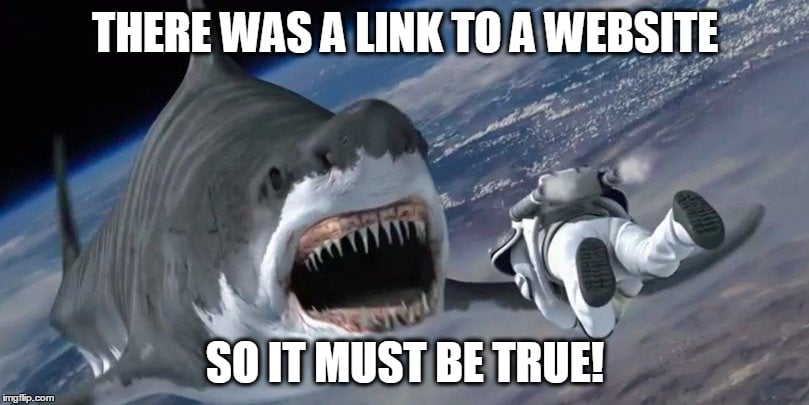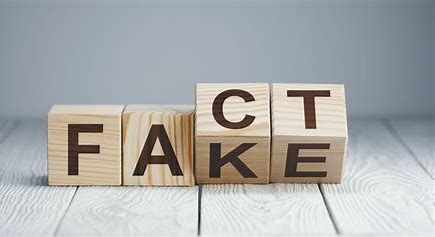How to Spot Misinformation and propaganda
Introduction
In today's world, it can be hard to know what's true and what's not. With so much information available online, it's easy to get lost in a sea of facts, opinions, and outright lies.
That's where misinformation comes in. Misinformation is false or misleading information that is spread intentionally or unintentionally. It can be spread through social media, email, or even word-of-mouth.
How to Spot Misinformation
There are a few things you can do to spot misinformation:
- Be critical of the information you see and hear. Don't just accept everything that you read or hear as fact.
- Check the sources of information. Where did the information come from? Is it a reliable source?
- Look for evidence to support the claims that are being made. Can you find other sources that corroborate the information?
- Be aware of your own biases. Everyone has biases, but it's important to be aware of them so that they don't influence your judgment.
Here are some additional tips for spotting misinformation:
- Look for clickbait headlines. Clickbait headlines are designed to grab your attention, but they're often misleading.
- Beware of conspiracy theories. Conspiracy theories are often based on misinformation, and they can be very harmful.
- Don't share memes or videos that you're not sure about. Memes and videos can be a great way to share information, but they can also be used to spread misinformation.
- Use fact-checking websites to verify information. There are a number of fact-checking websites that can help you to verify information.
Conclusion
Spotting misinformation can be tricky, but it's important to be able to do it. By following these tips, you can help to ensure that you're getting accurate information.
Here are some funny things to keep in mind when spotting misinformation:
- If it sounds too good to be true, it probably is.
- If it makes you angry, it's probably trying to manipulate you.
- If it's on the internet, it must be true. (Just kidding!)
So, there you have it. A few tips on how to spot misinformation. Be aware, be critical, and be skeptical. And most importantly, share your methods of identifying bad actors, misinformation, and propaganda. We can all do our part to fight the spread of misinformation.
Here are some resources that can help you learn more about misinformation:
https://adfontesmedia.com/interactive-media-bias-chart/
Is a media bias chart that rates news sources on a scale of 0 to 64, with 0 being the least biased and 64 being the most biased. The chart also takes into account the reliability of each source, with 0 being the least reliable and 64 being the most reliable.
I believe that this website is a powerful tool that we can use to fight disinformation and ensure that our community is getting accurate information. It is also complementary to the Bias Compass, which is a tool that helps people to identify their own biases.
Here are some of the ways that we can use the website:
Evaluate the credibility of news sources before we share them with our community. This will help us to avoid sharing misinformation.
Understand the different types of bias that exist in the media. This will help us to be more critical of the information that we share.
Find more reliable and unbiased sources of information to share with our community. This will help us to make sure that our community is getting accurate information.
Use the Bias Compass to identify our own biases and be more aware of how they might be influencing our interpretation of information.
- FactCheck.org: https://www.factcheck.org/
- Snopes.com: https://www.snopes.com/
- PolitiFact.com: https://www.politifact.com/
- The Washington Post Fact Checker: https://www.washingtonpost.com/news/fact-checker/
Thank you for reading!



I have scrolled through the Post and some remarks.
Firstly, I wish to address that the political idiom between countries and the meaning of a word can vary alot Ergo, in Europe the word " Liberal" can mean anything, so without context, it becomes meaningles. And the same goes for many USA wordings like " socialist and " left and right winged".
As this is a worldwide community, let's start to respect that words and meanings vary. The USA has some specific issues that other counties simply do not on the same scale. The same goes the other way around, ofcourse.
Many counties have different experiences, history and so, you most definitely can not project your political ideologicall meaning to other countries, and think you're going to be understood or have a good conversation.
Secondly, about misinformation. Not all media bias websites that are suggested are helpful to identify misinformation, but they can be of help. So, I suggest that, while the poster of any content should do his own research first, before blindly posting something , that person is mainly responsible for this info. And the whole community should share the responsibility for checking it out, before parroting a remark. Finally, the mods have the end repsoniblilty for this community, hence they could do a final check if needed.
Thirdly, the main source of misinformation are proganandists. Having a rational or factual conversation is impossible, simply because their goals are different. They want discord, arguments, emotional responses, so the only solution is to ban them. The bigger problem with propagandist ( bots/ botfarms/ dolls etc is to recognise them. That's sometimes hard to do. But they all have one similarity, and that is their INTENT.
" Propaganda is communication that is primarily used to influence or persuade an audience to further an agenda, which may not be objective and may be selectively presenting facts to encourage a particular synthesis or perception, or using loaded language to produce an emotional rather than a rational response to the information that is being presented. Propaganda can be found in a wide variety of different contexts.
Here some extra websites for additional factchecking:
https://mediabiasfactcheck.com/
https://www.bellingcat.com/
https://euvsdisinfo.eu/about/
Yes, I do get that my contribution could have been better, more inclusive, less biased, better nuanced etc. On the other hand this is a public forum, if you can't find an ounce of patience to try to understand others, you might not belong here. Also if you are a nihilist, your remarks carry no weight without context. And if you feel happy about being a destructionalist, good for you, just don't harass others to agree and keep it to yourself.